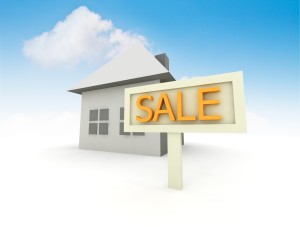How Much Home Can You Afford?
Have You Considered the True Costs of Buying a Home?
 Buying a house is a big step. But most people don’t really understand what a house is going to cost them. Instead, they look at the price of the home, plug that into a mortgage calculator, and then think “hey, I could afford those payments!” What they fail to take into account is that owning a home is more than just principle and interest payments each month. If you’re wondering how much home you can afford, keep reading as Practical Taxes breaks it down.
Buying a house is a big step. But most people don’t really understand what a house is going to cost them. Instead, they look at the price of the home, plug that into a mortgage calculator, and then think “hey, I could afford those payments!” What they fail to take into account is that owning a home is more than just principle and interest payments each month. If you’re wondering how much home you can afford, keep reading as Practical Taxes breaks it down.
For the sake of our analysis, we will use a home price of $200,000 and a 4% interest rate with no down payment.
Paying on Principle and Interest
Principle and interest are the two biggest components of owning a home. We can figure out exactly what those payments are by using a mortgage calculator. Google has one built right into its system, or there are dozens online (Bankrate has a good one).
Using a calculator we can see that a 30 year loan will cost $955 each month.
Paying Private Mortgage Insurance
Private Mortgage Insurance, or PMI, is required if you put less than 20% down on the house that you are buying. This insurance protects the lender in case you default on the loan. Unfortunately you, the buyer, has to pay for this insurance that does nothing for you. PMI can run between .5% and 1.5% of the loan costs. Let’s use the lower number for our analysis.
PMI will cost an additional $83 per month.
Paying for Insurance
Homeowner’s insurance is a good idea even after you have paid off the loan. If you have a mortgage on your house, it is required by the lender that you maintain insurance. Costs for insurance premiums can vary dramatically depending on where you live, what types of materials were used to build the house, how old the house is, and if there are any “dangerous” items or animals on the property (swimming pools, trampolines, aggressive dogs, and the like). Most of the time homeowner’s insurance is pretty cheap.
Insurance will run you another $75 per month.
Paying for Utilities
Depending on where you were living before, you might not have had to worry about utility bills. If you lived in an apartment, then your bills were likely a lot lower than living in a home. Apartments are often warmer (especially if your unit was between 2 others), they don’t have a lawn to water, and generally they are smaller than a house. When you move into your own home, you are responsible for the entire utility bill. Since they fluctuate depending on season, age of the house, size, etc. we will try for a reasonable average.
Utilities will be roughly $200 per month. Not including phone, internet, cable, and other perks.
Paying for Maintenance
We’re not done adding up the costs of owning a home yet. Unless you are buying a brand new house that comes with a warranty, you are responsible for all of the maintenance that goes along with the house. That means if a water heater conks out, you get to fix or replace it. If the furnace dies, the dishwasher overheats, the refrigerator stops running, or even a light bulb burns out, then it is on you to get it back in order. That’s not to mention the fact that eventually the roof will need replaced, landscaping dies, and things will need upgraded, updated, and at least painted. You can pay for all of these when the time comes, but it would be better to have an emergency fund to offset those costs.
A maintenance slush fund needs at least $100 per month added to it.
The True Cost of Owning a Home
When you add up all of the costs, you can see that owning a home is a lot more than plugging the price into a mortgage calculator. In our example we see that our monthly costs come to:
- Principle and Interest: $955
- PMI: $83
- Insurance: $75
- Utilities: $200
- Maintenance: $100
- Total Costs: $1,413/month
Owning a home comes to about 150% of the principle and interest. So before you jump into home ownership, make sure that is the number that you can afford.
Practical Taxes Can Help
When you need an accountant in Billings, you have options. If you come to Practical Taxes you will get low cost tax preparation by an accountant. Your tax refund will likely be higher than if you try to do your own taxes, and the end result is that you have more money that you can set aside to put as a down payment on your next home.
Need to set up an appointment to have your taxes done? Call 406-894-2050.

Nice article.
Good to know.